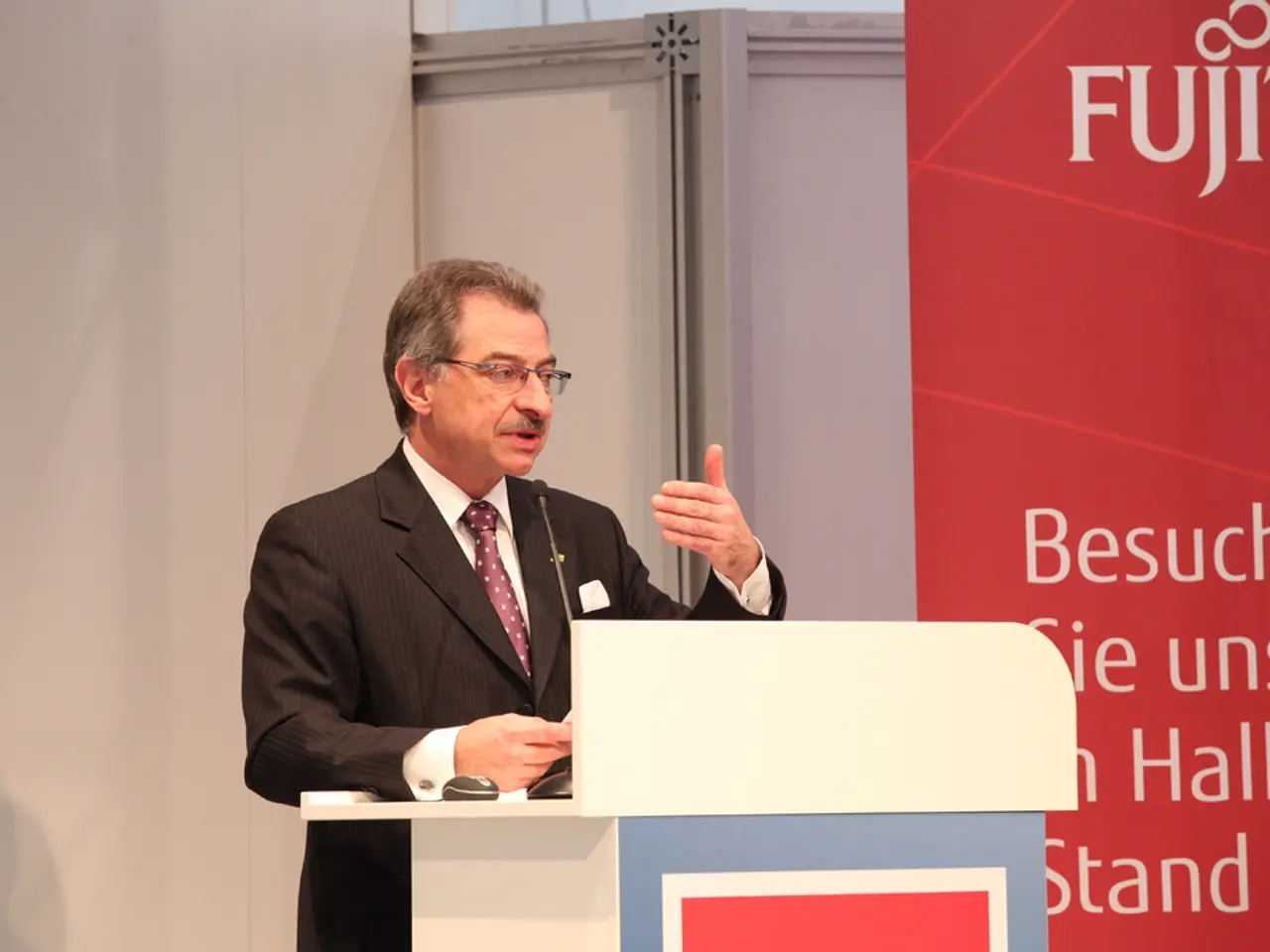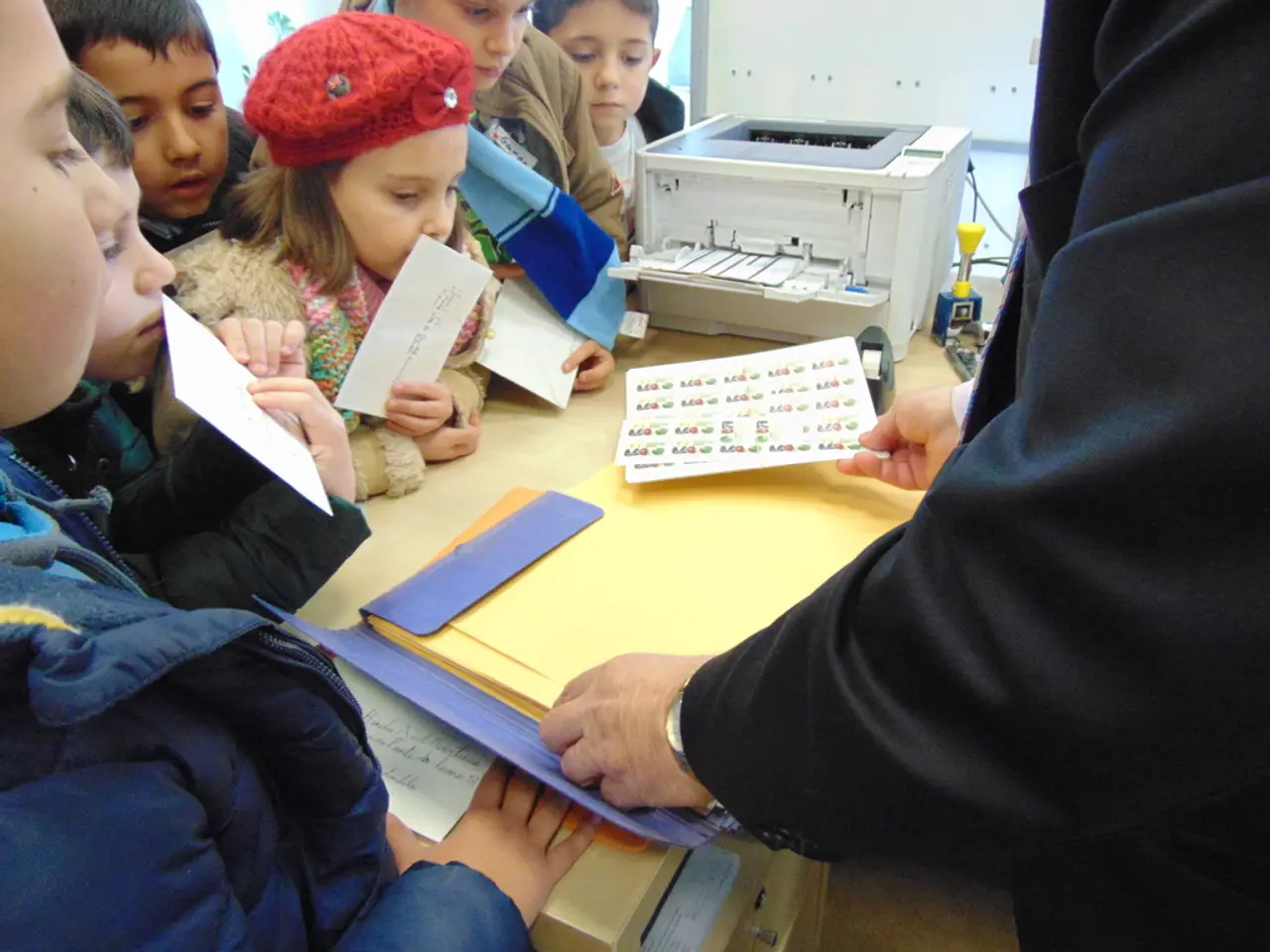Swiss German educational institutions abandoning French instruction in favor of English elicits ire
In the ever-evolving landscape of global communication, Switzerland is not an exception to the rising dominance of English as a universal language. A recent study has highlighted the preference for English over French in teaching foreign languages in primary schools across many Swiss cantons.
Historically, French held a prominent position in Swiss education due to the country's proximity and cultural ties with neighbouring French-speaking nations. However, the surge of English as the lingua franca in business, science, and diplomacy has led to a shift in educational priorities towards English language acquisition.
Swiss education traditionally promotes multilingualism, with children often learning multiple languages. This inclination towards English, alongside French and German, in primary schooling is part of a strategy to prepare students for a multicultural and globalized world.
In the bilingual cantons of Bern, Fribourg, and Valais, as well as in neighbouring French-speaking cantons such as Solothurn, Basel-Landschaft, and Basel-Stadt, French is taught as the first language. In contrast, the majority of other German-speaking cantons prioritize English.
The trend towards teaching English over French is not a recent development. It can be traced back to the 19th century educational reforms, which aimed to broaden curricula and prepare children for citizenship and employment. This shift aligns with the global rise of English in the 20th and 21st centuries.
A survey conducted by Starke Schule beider Basel, an association critical of the 2004 agreement, found that two-thirds of the residents polled (over 80 percent of whom were teachers) were against the continued teaching of two foreign languages in primary school. If only one foreign language were to be taught, 53.1 percent preferred English over French, with only 34.5 percent choosing French as the language to be kept.
However, the inter-cantonal concordat, an agreement reached in 2004, stipulates that two foreign languages must be introduced in primary school, one of which has to be a national language. If more cantons move to favour English, it could potentially lead to the collapsing of this agreement.
Concerns have been raised about the potential loss of identity that could result from dropping 'early French'. Leaders such as Christophe Darbellay, Valais state councillor, believe that learning another national language is necessary for national cohesion. Darbellay, president of the Conference of Cantonal Directors of Public Education, expressed his concern about the situation to Swiss newspaper Le Tribune de Genève.
Frédéric Borloz, head of Vaud's Department of Education and Vocational Training, emphasizes the importance of learning another national language, stating that it is more than just an educational issue; it is a foundation of their Willensnation, a nation forged by the will of the people.
The survey did not provide information on the preferences of residents in other cantons, leaving the future of foreign language education in Swiss primary schools uncertain. The plans to drop French are currently in draft stage in most cantons, but Appenzell Innerrhoden and Uri have already implemented the switch to English over French.
As Switzerland continues to navigate this linguistic shift, the balance between preserving national identity and preparing students for a globalized world remains a pressing concern.
The shift towards teaching English in Swiss primary schools, as highlighted by the survey conducted by Starke Schule beider Basel, aligns with the global rise of English in politics, education, and general news, potentially impacting the inter-cantonal concordat and prompting concerns about the preservation of national identity.
The preference for English over French in teaching foreign languages in Swiss primary schools, despite historic cultural ties with French-speaking nations, is intertwined with the need for students to be prepared for a multicultural and globalized world, as evidenced by the survey findings and the global dominance of English in various sectors.




